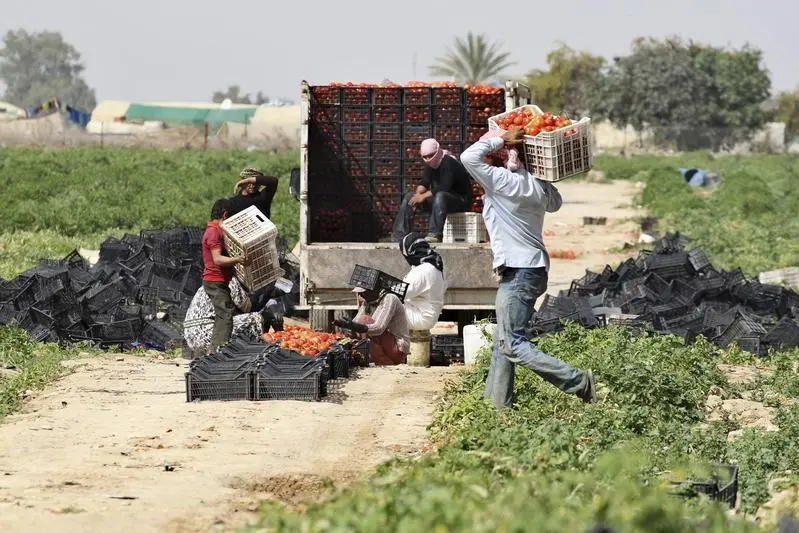PHOTO
Rising temperatures, combined with the late arrival of rain, are impacting farmers’ crop yields and are causing a significant increase in production costs, according to the Jordanian Farmers Union (JFU).
In a statement sent to The Jordan Times, Head of the Jordan Meteorological Department at the Transport Ministry Raed Al Khattab noted that early indicators predict that the total rainfall in autumn, which makes up roughly 11 per cent of Jordan’s annual rain average, will witness a 30 per cent decrease.
President of the JFU Mahmoud Oran noted that this “delay in rainfall” was preceded by a 10-day heatwave which affected the Kingdom at the end of August.
Other contributing factors include a low volume of rainfall last winter and a frost wave in March, which had a drastic impact on the flowering and pollination of plants, he said.
He said that such changes in the climate have caused a delay in the cultivation of vegetable crops.
“Roughly 10 years ago, rainfall began in September. Farmers in the Jordan Valley cultivated their lands and planted seeds to grow vegetable crops, such as cucumber and courgette, at the beginning of August. This year, many have delayed planting till the end of September,” Oran told The Jordan Times.
Rising temperatures have also affected the quantity and quality of the fruits borne by rain-fed olive trees, as well as the oil they carry, he added.
“Last year, a ripe olive fruit contained 17 to 19 per cent oil. This year, I believe that percentage won’t be higher than 15,” he continued.
Oran also said that high temperatures during the day increase the appetites and reproduction cycles of insects, which feed on plants. The high diurnal temperature variation between day and night also causes fungal plant diseases, he added.
Haitham Slibi, a farmer of vegetable crops and grapevines in the central Jordan Valley, noted that insect pests in this type of weather pose a threat to the size and quality of crop yields.
“My use of pesticides and insecticides has increased by 50 per cent compared with the same period last year,” he told
The Jordan Times, noting that pesticide prices have doubled over the past few years for “unclear and unjustified” reasons.
Oran also pointed out that this weather has also an adverse impact on livestock production.
“Farmers, who mainly rely on rain-fed pastoral grasses and shrubs, will be forced to resort to dry feed, which will naturally increase their production costs,” he said.
Moreover, Oran noted that building the resilience of the agricultural sector, which is particularly vulnerable to the impacts of climate change, must be made a “priority agenda”.
“The government needs to join efforts with relevant organisations in Jordan to work on enhancing scientific research in order to produce varieties of plants capable of adapting to these emerging changes,” he said.
© Copyright The Jordan Times. All rights reserved. Provided by SyndiGate Media Inc. (Syndigate.info).




















